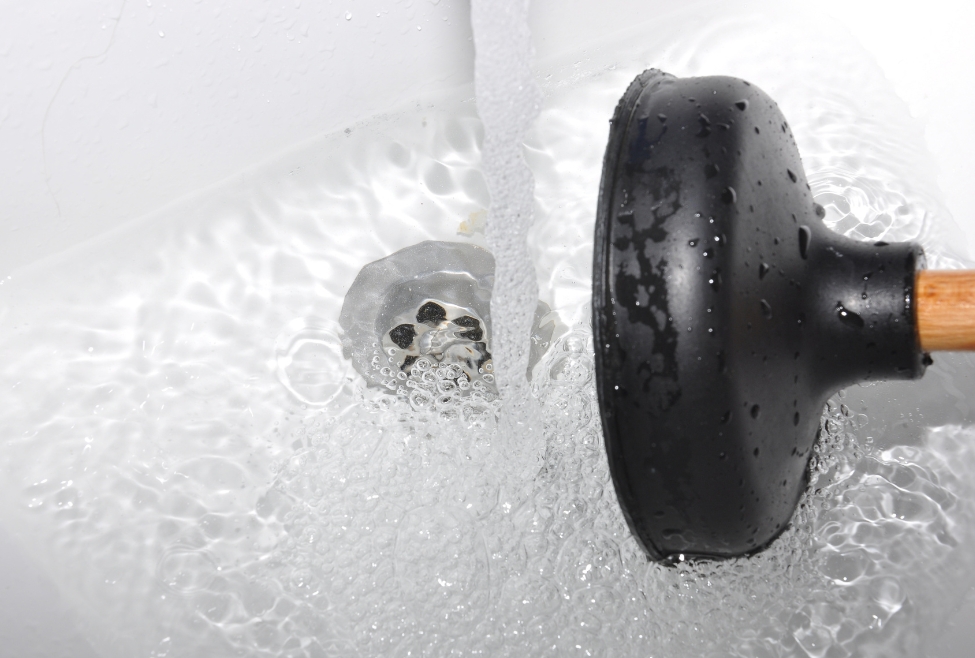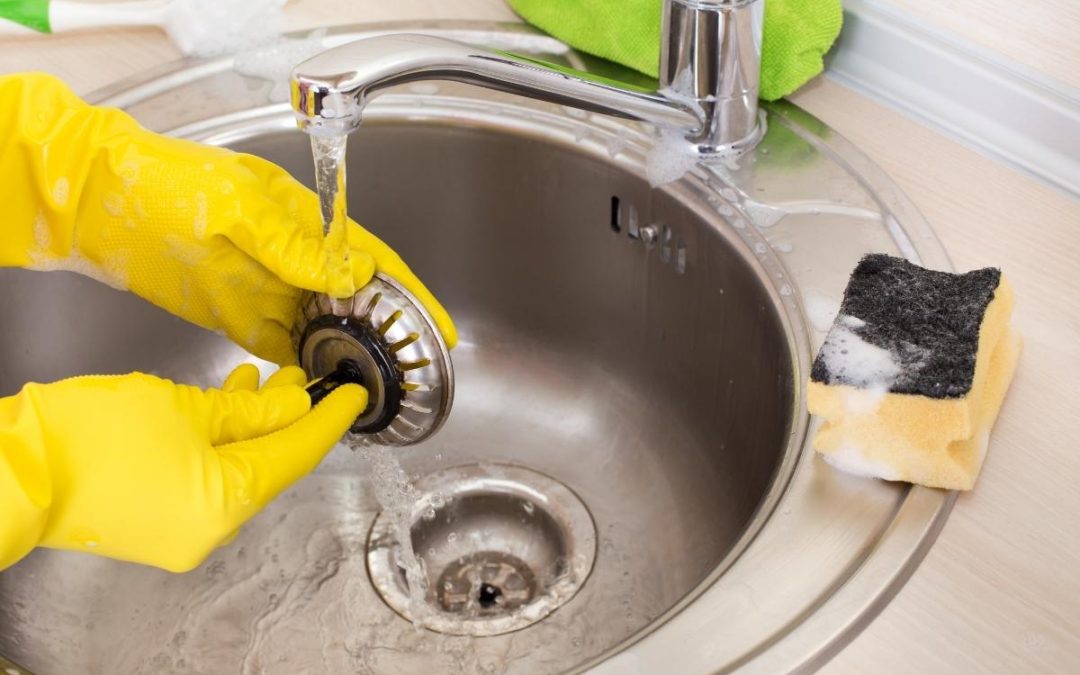Top Tips For Repairing A Slow-Draining Sink Fast
Top Tips For Repairing A Slow-Draining Sink Fast
Blog Article
This article which follows in relation to 7 Ways To Fix A Slow-Draining Sink Before You Call A Plumber is amazingly fascinating. Read on and make your own final thoughts.

Introduction
We've all existed: You're brushing your teeth or cleaning your hands, and you notice the water merging in the sink. Rather than swiftly swirling down the drain, it sticks around, transforming your once-refreshing early morning routine into a mini swamp scene. A slow-draining sink isn't just aggravating; it's commonly an indication of bigger pipes concerns prowling below the surface area. The good news is that many slow-draining sinks can be taken care of with a little knowledge, a few fundamental devices, and some perseverance. Prepared to tackle this project head-on? Allow's roll up our sleeves and dive right in.
Comprehending the Root Causes Of a Slow-Draining Sink
Prior to you start poking around in your pipelines, it helps to understand what may be causing the downturn. Recognizing the source makes it easier to select the best repair.
Devices and Materials You'll Require
The right tools make all the distinction. The good news is, you won't require a fully stocked plumbing technician's van to do the job.
Step-by-Step Guide to Taking Care Of a Slow-Draining Sink
Now, let's get involved in the nitty-gritty. This step-by-step procedure will assist you via basic techniques to recover your sink's water drainage.
Step 1: Remove and Clean the Stopper
Frequently, the stopper (that small plug you push down to block water) is the first perpetrator. Remove it carefully and clean off any type of hair or gunk caught around its base. Wash it extensively prior to placing it back in position.
Action 2: Make Use Of a Bettor to Displace Debris
Got that plunger all set? Position it over the drainpipe and offer it a couple of firm pumps. The concept is to create suction that can loosen any clog. If you see littles particles floating up, you're on the ideal track.
Action 3: Attempt a Drain Snake or Cord Hanger
If the bettor does not suffice, it's time to highlight the drainpipe serpent. Delicately feed it right into the drain and twist as you go. You could feel some resistance-- that's likely the blockage. Maintain twisting and pulling up until you eliminate the obstruction. If you do not have a drainpipe serpent, a corrected wire hanger can work in a pinch.
Step 4: Apply a DIY Drainpipe Cleaner
An all-natural cleaner made from baking soda and vinegar can break down recurring grime. Pour half a cup of baking soft drink into the drainpipe, complied with by half a cup of vinegar. Allow it fizz for around 15 mins, then flush with warm water. This chemical reaction typically does wonders for small obstructions.
Step 5: Reassemble and Examine the Sink
Placed whatever back together and run the faucet. Does the water now swirl away at a reputable speed? If yes, offer on your own a pat on the back. Otherwise, do not anguish-- there are still a couple of even more dress up your sleeve.
Necessary Tools for Do It Yourself Repair Works
A bettor is your go-to starting factor. A small, sink-sized plunger produces suction that can displace small obstructions. For even more relentless blockages, a drain serpent (often called a plumber's auger) functions marvels. A pair of gloves, a flashlight, and perhaps a pair of protective goggles are also useful.
Suggested Cleaning Solutions
Mild meal soap and hot water can assist break down greasy accumulation. A mixture of baking soda and vinegar is a time-tested natural remedy, and enzymatic cleaners supply an even more environment-friendly method. Keep chemical drain cleansers as a last resource, as they can be rough on your pipes.
Usual Perpetrators Behind Slow Drain
So, what's clogging points up? Normally, it's a combination of daily particles-- think hair, soap residue, tooth paste deposit, and remaining food fragments. In time, these tiny bits gather and hold on to the pipe walls, progressively tightening the passage and making it harder for water to travel through. Sometimes, mineral deposits from tough water can also contribute to the substance, producing the ideal tornado for stubborn blockages.
When is it Time to Do Something About It?
If you observe the water draining pipes slower than usual, it's an excellent idea to intervene faster rather than later. Waiting as well long might result in finish obstructions, unpleasant smells, and even pipe damages. If the water takes more than a couple of seconds to remove after shutting off the faucet, consider it a warning and get ready to place on your DIY hat.
Safety First: Preventative Measures and Prep work
Before you launch into unclogging setting, think about safety and security. You're managing possibly filthy water and debris, so slip on a set of handwear covers. If you're using chemical cleaners, ensure the space is well-ventilated and comply with the guidelines on the tag.
Safety Gear and Workspace Arrangement
Put down some old towels or rags around the sink location to catch splashes. Remove any products that might enter your way, like soap dispensers or tooth brush owners. Ensure you have excellent illumination-- grab a flashlight if needed.
Different Methods for Stubborn Clogs
Not all blockages are created equal. If your sink still rejects to cooperate, think about these different services.
Sodium Bicarbonate and Vinegar Method
We already discussed this, however it deserves noting again. This mild, environment-friendly approach is safer than chemical cleansers and frequently quite efficient.
Chemical Drain Cleaners
Enzyme-based cleansers make use of natural bacteria to absorb organic matter. They're an exceptional selection if you're aiming to prevent severe chemicals. Just bear in mind, they might take a bit longer to function their magic.
Chemical Drainpipe Cleansers: Benefits And Drawbacks
Chemical cleaners can blow up with hard clogs quickly, yet they're not without drawbacks. They can generate warm and fumes, damage pipes if made use of excessively, and posture environmental dangers. Use them sparingly, and always follow the instructions thoroughly.
Preventive Measures to Maintain Your Sink Flowing
Avoidance is the best remedy. By adopting a few simple routines, you can maintain your sink from decreasing to begin with.
Normal Cleaning Behaviors
Wipe down the sink container and component location on a regular basis. Remove hair or food bits prior to they have a chance to wash down the drain.
Avoiding Dangerous Substances Away
Hesitate before disposing coffee premises, grease, or coarse veggie scraps down the sink. These perpetrators cling to pipe wall surfaces, producing clogs over time.
Routine Upkeep Checks
Arrange a fast monthly examination. Run hot water with the sink for a few minutes, taking notice of the flow. If it seems sluggish, act quick prior to it ends up being a full-blown clog.
When to Call an Expert Plumbing Professional
In some cases, no matter just how hard you try, that clog simply won't move. That's when it's time to bring in the pros.
Signs That Indicate a Much More Severe Issue
If your sink drains pipes slowly despite multiple efforts, or if you discover water supporting in various other components (like your shower or commode), you might have a more significant pipes issue hiding much deeper in the system.
Balancing DIY Efforts with Specialist Help
While DIY can save you cash and supply a feeling of achievement, there's no pity in calling a professional. A professional plumbing can assess your whole plumbing arrangement, making sure there's no underlying damages or long-lasting trouble that could cost you a lot more down the road.
Contrasting Costs and Long-Term Solutions
Before choosing, think about the big picture. A cheap, quick fix may fix the trouble temporarily, but investing in a much more long-term option might conserve you money and anxiety over time.
Considering the Costs of DIY vs. Expert Repairs
DIY repairs often cost bit greater than the price of a bettor or a container of cooking soft drink. Expert services, on the other hand, come with a cost but may avoid repetitive problems and costly repairs later on.
Purchasing Top Quality Fixtures and Upgrades
If your sink's style adds to frequent obstructions, it might be worth updating to higher-quality components or altering the plumbing design. Consider this a financial investment in your home's performance and convenience.
Conclusion
A slow-draining sink can feel like a small irritation, however it's often an indication that your pipes requires a little tender loving care. By comprehending the origin, using the right devices and strategies, and devoting to simple preventive measures, you can keep your sink moving easily. And when all else falls short, never ever think twice to call in a specialist-- your home's pipes deserves the investment in care and upkeep.
Three Common Ways to Fix a Slow Drain
Baking Soda Method
Boil a full pot of water. Measure out cup of baking soda and pour it down the drain. Then take cup of the magical cleansing substance known as white vinegar and drop that down there too. Allow the mixture to fizz in the drain for five minutes as the vinegar and baking soda combine. Now dump in that whole pot of boiling water. This combination of cleaning substances should clear out anything that is causing your sink to drain slowly. If it doesn t...
Zip-It
If the baking soda method doesn t clear out your drain, it may be because a significant amount of hair and/or other debris has collected there and you need to remove it. Purchase a Zip-It tool at any home improvement or hardware store and insert it into your drain. It will catch any collected hair or debris that s blocking the flow of water. Pull it out. If it s got a big clump of hair, etc. on the end, you ve probably got your culprit.
Drain Cleaner
If these methods don t work, there is the standard drain cleaner that you can also buy in a hardware store or even your local grocery store. It s better if you can use a household solution, but these drain cleaners often work in a pinch. They re very simple to use. You generally just dump them in your drain and wait. If even this method is not effective, it may be time to call the plumber.
https://www.mrrooter.com/oneida/about-us/blog/2017/july/three-common-ways-to-fix-a-slow-drain/

Do you enjoy reading up on 4 Tips to Fix a Slow Draining Sink? Write a review down below. We'd be delighted to listen to your insights about this write-up. We are looking forward that you come back again soon. If you please set aside a second to share this write-up if you enjoyed reading it. Thank you for your time. Come back soon.
Browse Website Report this page